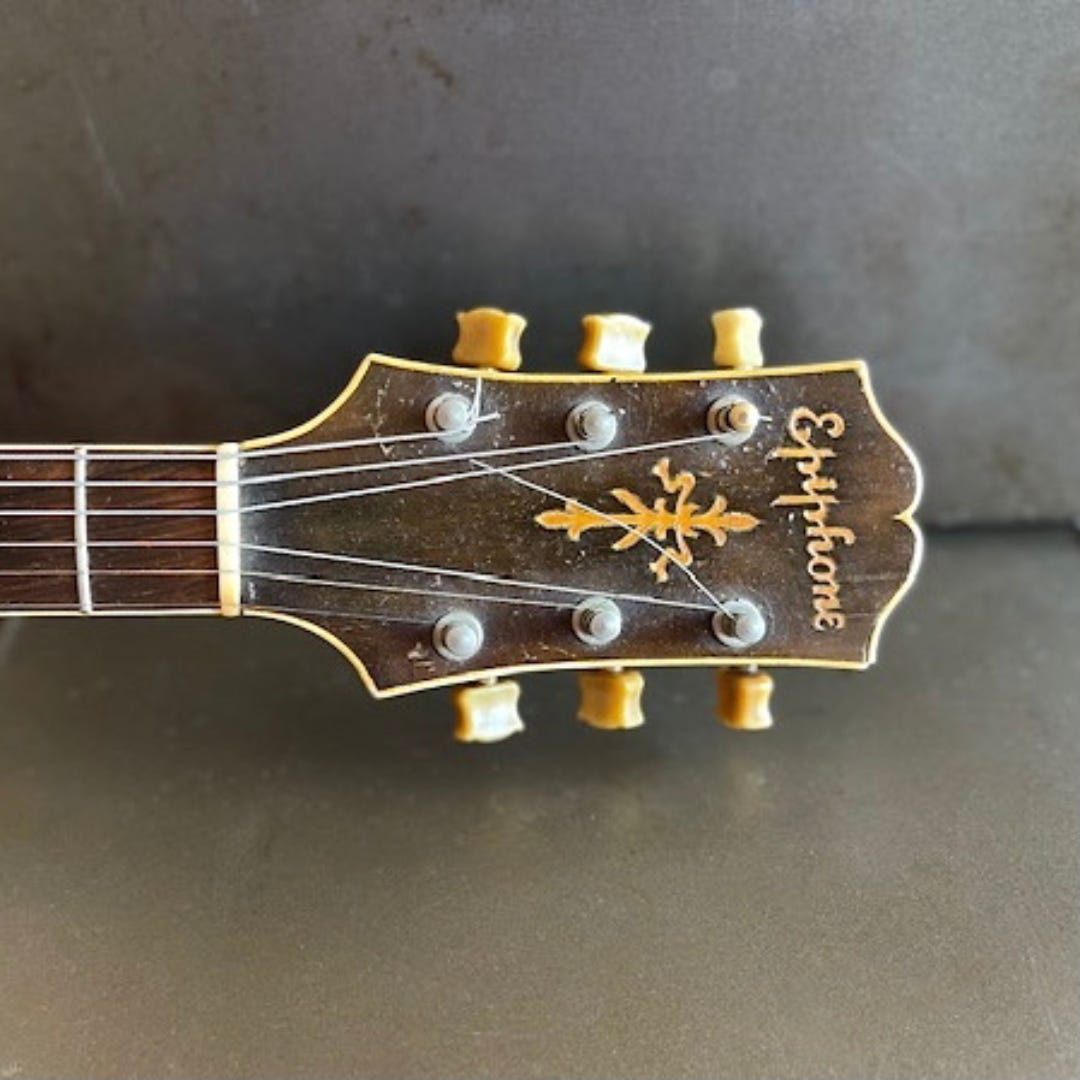AL'S EPIPHONE
“The stiffness of the steel strings helped us remember Dad’s gentle but powerful hands.”
My late father, Al Novacek (stage name Al Novis), was a musician affixed to one instrument for most of his life. He showed an early talent for violin and classical music, but his interest in pursuing a career in that direction evaporated when he heard a recording by the gypsy jazz guitarist Django Reinhardt, whom he always referred to as “the greatest.”
As a teenager, Al played jazz on a small acoustic guitar. Working alongside his father at a picture-framing shop in Chicago, he saved up for a professional instrument, and in 1938, at the age of 21, he bought a brand-new Epiphone archtop.
He would have that guitar in his hands virtually every day for the rest of his life. We believe he had it even in the Solomon Islands and the Philippines during World War II: When not digging foxholes and rushing machine-gun nests (and earning a bronze star for exemplary service in heavy combat), he was lead guitarist in his Army band. By this time, Al had an uncanny sense of chord voicings and a smoky baritone for songs like “Tangerine” and “Green Eyes,” made famous by the Jimmy Dorsey Orchestra.
Right after the war, he played the Epiphone at the Brown Derby in Chicago, where my mother saw him on stage and decided he was the man she would marry. He played it in the early ’50s at the Sands and Thunderbird hotels in an embryonic Las Vegas, and over the following decades at recording and movie studios, celebrity parties, lakeshore Wisconsin resorts, and, in later years, with his in-house trio at L.A.’s Century Plaza Hotel. Sixty years after he bought the Epiphone, he played it on New Year’s Eve at the Beverly Hills Hotel, a very prestigious gig and one of his last.
These engagements took him on the road for weeks, sometimes months, at a time, and when he was gone, he was missed. When he returned home—we lived in West Los Angeles, with a three-year stint in northern Wisconsin—he was a loving and modest man. Except for that guitar, he didn’t really have a taste for material things. (We got in the habit of always including return receipts with his Christmas presents.) Once when he spilled white paint on some well-worn shoes, he simply painted them completely white and kept right on wearing them.
A few years after Dad’s death, in 2004, one of my brothers, a professional classical guitarist, took the Epiphone out of its case so we could hold it. The elegant headstock tops a neck with a rosewood fretboard and diamond-shaped nacreous inlays. The body coloration is a sunburst that fades outward to dark burgundy and black. The stiffness of the steel strings helped us remember Dad’s gentle but powerful hands. The only vivid sign of age and wear is on the body just below the strings and in front of one of the F holes. Dad did not use a pick guard, and his relentless wrist strokes had worn that surface soft and paper-thin.
Dad did not want his sons to be musicians. He had seen too many human tragedies in the business to wish that life for us. Yet all of us pursued music for some part of our lives, and some of us did so permanently. Music brought him a happiness that was infectious. It took him to a magical place, and we wanted to be there too.
—Michael Novacek
Michael Novacek is a curator of paleontology at the American Museum of Natural History in New York City. He has led expeditions around the world in search of dinosaurs and fossil mammals; his books Dinosaurs of the Flaming Cliffs and Time Traveler are based on those expeditions. As a young man he played professional electric bass and still plays guitar almost daily.



